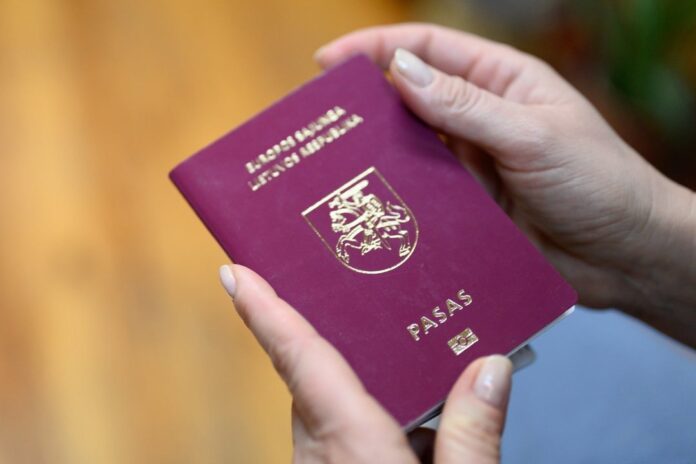
Provisional results from the Central Electoral Commission show that 1,413,288 people, or 58.96 percent of all voters, participated in the referendum. Of them, 1,026,408, or 74.13 percent, voted “yes”, but it was not enough to amend Article 12 of the constitution which requires more than 50 percent of all eligible voters. A total of 2,385,234 voters were eligible to vote in Sunday’s referendum, meaning that at least 1,192,617 “yes” votes were needed.
After Lithuania’s second referendum to allow dual citizenship failed on Sunday, MP Dalia Asanavičiūtė, who initiated it, suggests amending the Law on Citizenship to allow Lithuanian citizens in EU and NATO member states to keep their Lithuanian passports. Asanavičiūtė says the second failed referendum has put Lithuania into “a situation of legal impossibility” where dual citizenship cannot be expanded through a constitutional amendment, so she proposes to narrow down the list of countries whose citizenship Lithuanians could acquire without losing their Lithuanian citizenship.
“That’s why I have registered […] amendments to the Law on Citizenship. The bill proposes that Lithuanian citizenship could be retained by Lithuanian citizens by birth who left Lithuania after March 11, 1990, and acquired, not by birth, the citizenship of a member state of NATO and a member state of the organization’s partner European Union,” she said on Monday.
This would narrow down the list of countries whose citizens could retain their Lithuanian passports. This could be considered as “a separate, rare exception in line with the Constitutional doctrine”, the MP of the ruling conservative Homeland Union-Lithuanian Christian Democrats (TS-LKD) said.
Asanavičiūtė said that despite the setback, the results show that the Lithuanian public “in principle supports the idea of retaining citizenship”. In the 2019 citizenship referendum, 956,564 people, or 38 percent of all voters, backed the proposed amendment.
Parliament Speaker Viktorija Čmilytė-Nielsen has said she does not rule out holding another referendum on dual citizenship in the future. Čmilytė-Nielsen noted that “there are no easy solutions” to broaden dual citizenship and remains open to the idea of holding another referendum. “There’s a clear path that we’ve already taken twice; it seems that we’re getting closer to the result, but we’re still falling short. That’s the democratic will of the voters,” she noted. “I don’t completely rule out a repeat referendum if there’s a broad political will,” she added.
Lithuanians in the diaspora commenting on LRT Radio from the UK, Norway and USA agreed that the failure of the referendum was due to a shortage of information in Lithuania. No matter how much the referendum was advertised among Lithuanians abroad, a positive result was dependent on voters in Lithuania itself. General opinion holds that people were underinformed and the “formula” or the wording of the vote was not sufficiently clear.
World Lithuanian Community (PLB) chair Dalia Henke said she would be speaking to Lithuanian politicians to determine further steps, because a third referendum on this issue will not likely be held. She noted that the internet voting issue should be revisited, to allow Lithuanians in the diaspora to participate in elections more easily. Apparently a number of them did not receive their ballots even though they were registered to vote.



























